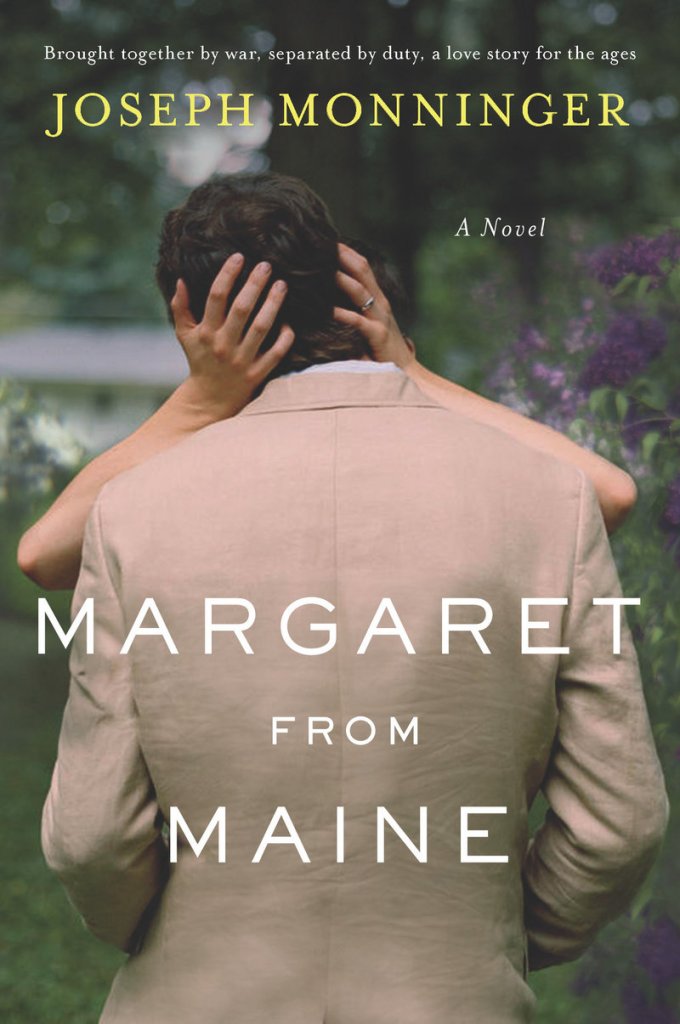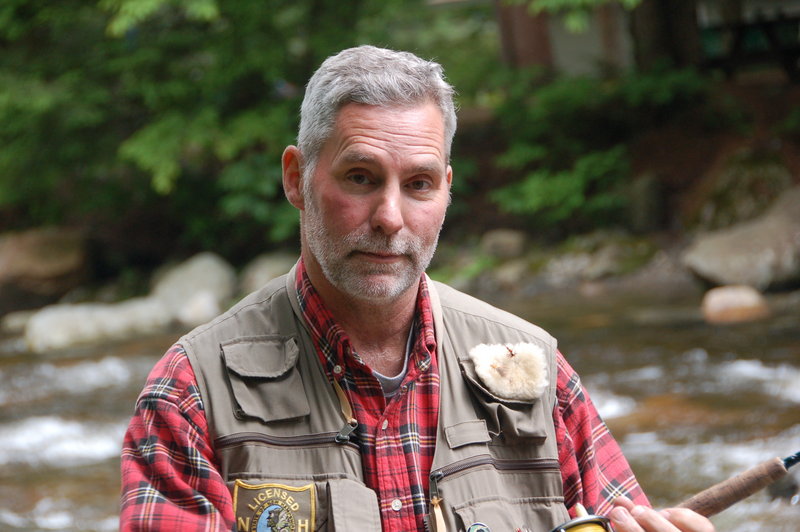The central character in the novel “Margaret from Maine” faces a dilemma so profound that none of us should dare judge her. Margaret’s husband, whom she loves deeply, returns from war in a coma. She cares for him and advocates for him, but develops feelings for another man while her husband lies in a vegetative state.
What is she to do? Act on her feelings or deny them, set them aside and dedicate her life to a man who cannot reciprocate her love?
That is the tension that propels this new novel written by New Hampshire resident and writing professor Joseph Monninger. He teaches at Plymouth State University and lives nearby in Warren, and has made his name as a writer of young-adult novels.
He’s also ventured bravely into the world of romance novels — bravely because it’s a genre generally dominated by women writers. But Monninger has found success with “Eternal on the Water” and “The World as We Know It,” and has been affectionately described as a cross between Henry David Thoreau and Nicholas Sparks.
Monninger sets much of his literature in Maine. In this novel, Margaret is a dairy farmer who lives near Bangor. Her husband, Thomas, joins the National Guard because he needs the money.
Riddled by a sniper’s bullets, Thomas is laid low on the plains of Afghanistan and returns home in a coma. Margaret travels to Washington, D.C., to be part of a bill-signing ceremony to benefit wounded veterans. There, she meets Charlie, a soldier trying to make do after his own serious injury. The story unfolds from there.
Q: Let’s start by talking about your love affair with Maine.
A: For me, Maine has always been the place to go. I once sat around with a bunch of friends, and we said if everything ends terribly and you had to go someplace, where would you go? I said Maine. I’m lucky enough to have two buddies that I have fished with for more than 40 years, and for 35 of those years, we have gone to Kennebago Lake one week each spring. I also fish around Solon quite a lot, and I do the Allagash. I don’t think most people on the East Coast realize what a wilderness Maine really is.
Q: Was there any other choice as a location for this novel?
A: Pretty much, it was definitely Maine. A lot of my work, it’s either set in New Hampshire where I live or in Maine. Depending on the story or the geographic features, I go one way or another.
Q: If you love Maine so much, why do you live in New Hampshire?
A: Because I have a job in New Hampshire. I am professor at Plymouth State. It’s a nice life. I love New Hampshire too. I’ve been here more than 20 years. I teach English. My specialty is fiction and fiction writing. That is what I was hired to teach, but at a small school, you are called on to teach a lot of things. I also teach a lot of composition, which I love.
Q: How do you classify your novel? Do you consider it a romance novel?
A: I have two kind of spheres. One is the young adult thing that I am doing. The other is the adult thing. Is it romance? I don’t know. It’s a relationship novel. There seems to be some interest in men writing about issues that relate to women and stories that are based in romance. Nicholas Sparks is one who comes to mind.
I don’t know if you know this, but romance constitutes 90 percent of the books that are read. It’s a gigantic field, and it’s one field that has maintained its strength and continued to grow. There is no end to novels written by women for women. There seems to be interest in getting a guy’s take on the same subject.
Q: This question may reveal my ignorance, but “Margaret from Maine” may be the first romance novel I’ve ever heard of or read that begins in Afghanistan. Take me through your thought process in terms of how you created these characters and why you made a war injury a central turning point.
A: I’m fond of quoting Hitchcock, who says two people having tea at a table is a story, but put a bomb under it and it’s an interesting story. Margaret, who is a good, upstanding human being, has the unthinkable happen to her. Her husband comes back in a vegetative state, and she develops feelings for someone else. There is an ethical element at play, and it raises a bunch of questions for me that were provocative and interesting, and it applied pressure to a character, essentially.
Q: What do you like about Margaret?
A: One of the things that seems to come through in all my work, thematically, I am very interested in rural poor. She is not poor, but she is not wealthy. A lot of my young-adult work focuses on kids who do not have it easy at home. I live in a small town in New Hampshire, and I see a lot of good, honest, trustworthy people who are struggling to get by. She has a wonderful sense of dignity. She is a good person in all ways, yet she is in an impossible situation. I am also interested in characters who have to confront a change in their lives, one that just came on them. I find her interesting. She is not doing anything wrong, but she is doing something in the eyes of society that may be wrong.
Staff Writer Bob Keyes can be contacted at 791-6457 or:
bkeyes@pressherald.com
Twitter: pphbkeyes
Copy the Story Link
Send questions/comments to the editors.





Success. Please wait for the page to reload. If the page does not reload within 5 seconds, please refresh the page.
Enter your email and password to access comments.
Hi, to comment on stories you must . This profile is in addition to your subscription and website login.
Already have a commenting profile? .
Invalid username/password.
Please check your email to confirm and complete your registration.
Only subscribers are eligible to post comments. Please subscribe or login first for digital access. Here’s why.
Use the form below to reset your password. When you've submitted your account email, we will send an email with a reset code.